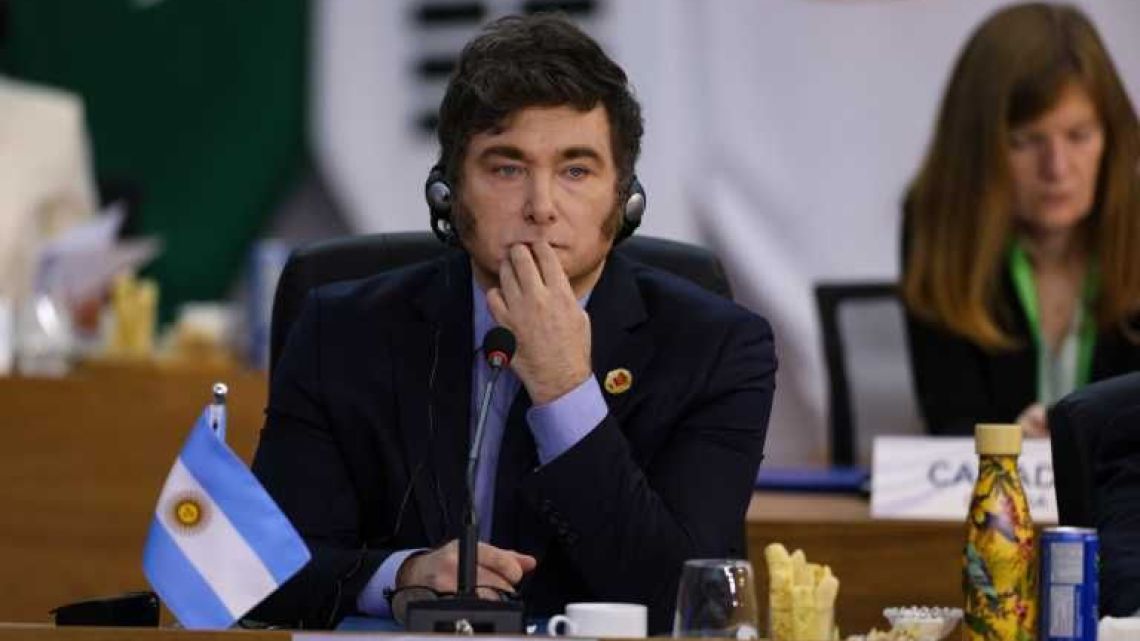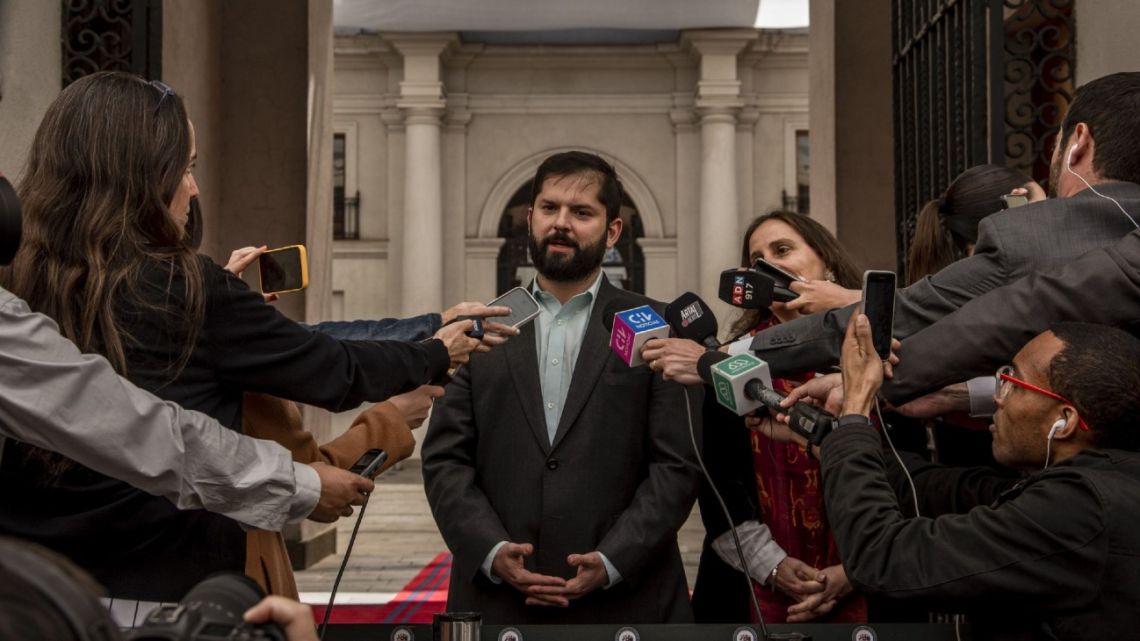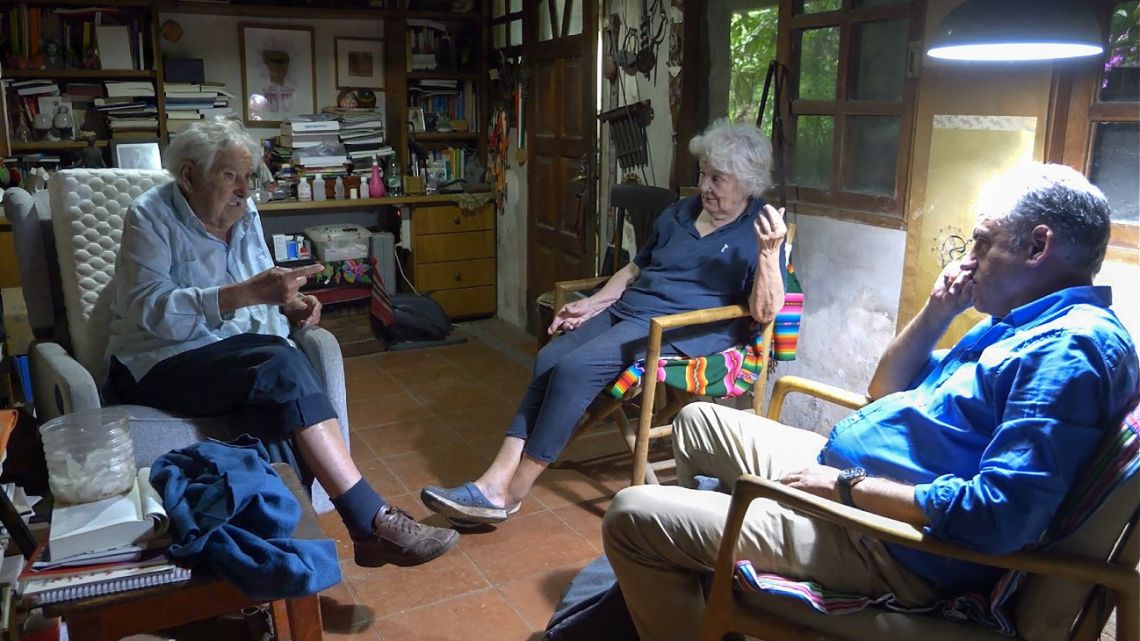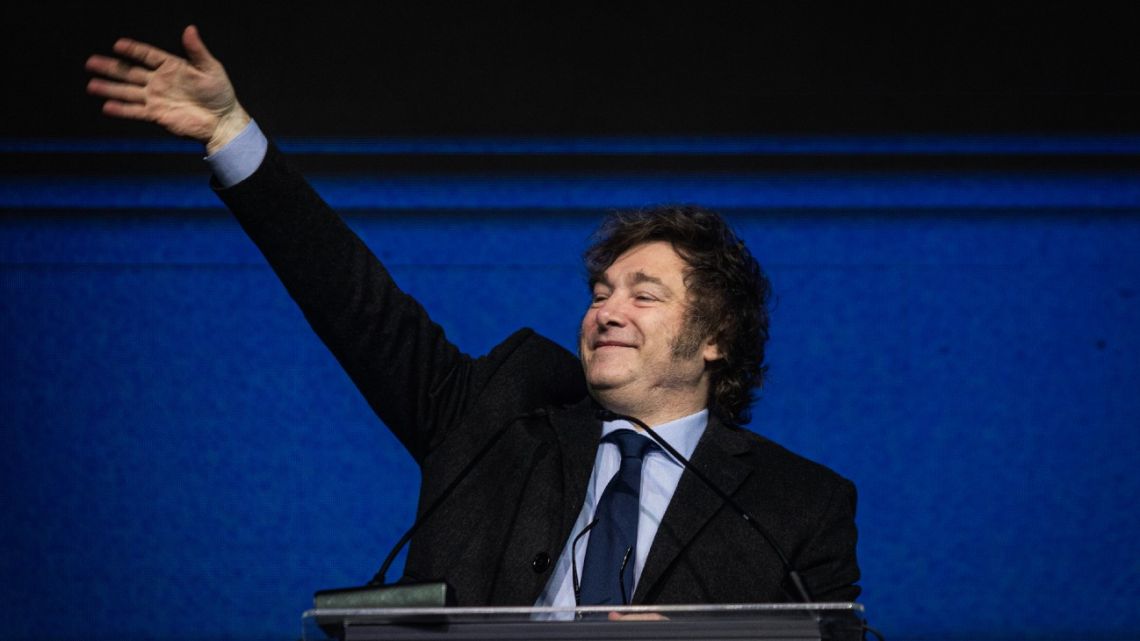Foreign Minister Gerardo Werthein carries a thick leather case for robust cigars, which is engraved with his initials “GW.” His addiction to brands such as Cohiba, Montecristo or Romeo y Julieta is such that just after he had been sworn-in as foreign minister, he decided not to use the normal ministerial office on the 13th floor of the Foreign Ministry building and instead move operations to the Palacio San Martín just over the road. It has airier rooms permitting him to smoke. To have any meeting with the minister, his subordinates have to cross the street – though the most conspiratorial rumours concerning the move suggest that Werthein suspects that the office occupied until recently by Diana Mondino was bugged.
Werthein took office on October 30 with the mission of rubber-stamping Argentina’s foreign policy in the name of President Javier Milei. Alignment with the United States and Israel, and trying to counter anything linked to progressive themes such as the United Nations’ 2030 Agenda or the “woke” outlook on the world are the priorities.
The new minister, who is Jewish, arrives with an important business track record dating back the beginning of the 20th century. In 2017, he left the family operation, the so-called Grupo W, to make a solo run on some business ventures.
From that period, he only conserved his share in the La Estrella insurance firm in partnership with Rodolfo D’Onofrio. He created the investment fund Calwaro now managed by his son and teamed up with Gabriel Hochbaum and Bettina Guardia de Bulgheroni in the El Observador de Uruguay media group, which has branches in Spain, the United States and Argentina. He further continues as vice-president of the International Olympic Committee.
Werthein ended up feuding with some of his his cousins, especially Darío Werthein, while maintaining a cordial relationship with Adrián. But neither of them today boast of being the foreign minister’s cousin – they prefer to stand to one side. They believe that any error by the minister could drag down the family name, which has already taken some hits in recent years for alleged financial non-compliance.
In the United States, Werthein was always closer to the Democrats than to the Republicans. He is a historic contributor to the Clinton Global Initiative Foundation headed by the US ex-president, to which he had already contributed over US$1 million by 2016, as revealed by the US Congress.
Gerardo’s link to the Democratic leader goes back at least 15 years. In 2009 he brought Clinton over to Buenos Aires to give a lecture and took him to dine with Néstor Kirchner and Cristina Fernández de Kirchner at the Quinta de Olivos presidential residence.
In 2010 the visit was repeated. The relationship even advanced at the personal level when Clinton invited Werthein to the wedding of his daughter Chelsea that same year. Due to that friendship (into which he has poured huge sums of money over the years), Werthein maintains a strong link with the Democrats.
While serving as Argentina’s ambassador to the US, Werthein made the most of those links when he introduced then-president-elect Javier Milei to Clinton in New York a year ago. This valuable relationship was borne in mind when it was initially decided to give the US Embassy to Werthein, but after Donald Trump’s triumph earlier this month, the businessman’s ties did not count for too much in the face of the future Republican administration.
K past
A long time ago in 2009 and 2010, Werthein was one of late former president Néstor Kirchner’s favourite businessmen. He praised Cristina Fernández de Kirchner on the C5N television channel, during interviews with Radio 10 interviews and comments to the Infobae news portal.
One of the rumours circulating back then was that Werthein had bought up part of the Grupo Hadad, together with businessman Cristóbal López and Ernesto Gutiérrez representing Eduardo Eurnekian. That was then, another Argentina, another era. Néstor Kirchner was still alive and he had influence at the Grupo Werthein, which took control of Telecom Argentina.
By 2013 the friendship was with the entire government and Werthein stood out as one of Kirchnerism’s favoured businessmen. He participated in the congresses of business social responsibility organised by the wife of then-federal planning minister Julio De Vido, and economists like Nicolás Dujovne let it slip out that he was an intermediary between Kirchnerism and some investors.
But with the death of Néstor Kirchner in 2010, the Wertheins lost ground. Above all, Gerardo, who, like Sebastián Eskenazi (to name another example), was stuck on the list of businessmen who did well during the first years of Kirchnerism and then did not manage to sustain the relationship during Cristina Fernández de Kirchner’s Presidency.









